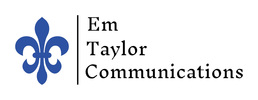Example of a Potential Conflict-based Identity
For example, I’m a child of divorced parents. When I dated guys during college, I remember hearing more than once the following: “You don’t seem like a girl who came from a home with divorced parents.” At the time, I found it odd that they expressed disbelief that I would be okay emotionally because I hadn’t focused my personal identity primarily on my divorced parents. I am many more things than that. Besides, “the girl with divorced parents” identity is based on my parents’ conflict with each other, and not even my own.
Certainly, my parents’ divorce influenced my life in significant ways. However, through that experience, I learned that I have multiple personal identities that serve to express who I am and who I am striving to become. Each of us are much more multi-faceted in terms of our personal identities than the conflict or trauma we have experienced. Yet, to understand ourselves and others more fully, it’s important for us to examine our conflict-based identities, especially when we have survived through very difficult conflicts in our lives.
The Benefits of a Conflict-based Identity
We can be wounded—and wounded severely—through the more intense conflicts we go through in our lives. But, whether or not we frame our identities around those conflicts is up to us.
Some conflicts identities may serve very positive purposes in our lives and communities. For example:
- We can draw necessary attention to pressing social problems.
- We can create opportunities for others with similar experiences to express themselves and seek support such as with veterans, abuse victims, alcoholic survivors, and victims of sexual harassment
We have all witnessed the power of people who have been inspired through their adversities and conflicts to become actively engaged in necessary causes to end injustice, abuse, intolerance, and all kinds of difficulties. In many cases, individual’s and groups’ conflict-based identities positively influence people toward greater love and understanding.
Despite these very positive aspects to advocating special causes through our conflict-based identities, there are some personal drawbacks to focusing exclusively on certain conflict-based identities, which we may have consciously or unconsciously created for ourselves.
The Personal Drawbacks of a Conflict-based Identity
Sometimes when we focus too heavily on our conflict-based identities, we may find ourselves blocked from the personal progress and peace that we desire. Some conflict-based identities may hold us back personally in the following ways:
- The conflict may yoke us to the past.
- We may separate ourselves from important others who lack our same conflict experience.
- We may elevate ourselves as having more important knowledge of a topic than others, which separates rather than unites us.
- We may not consider other important areas of identity in ourselves or others.
In addition to potential personal drawbacks of focusing too heavily on our conflict-based identities, there are some potential community drawbacks as well.
The Community Drawbacks of a Conflict-based Identity
When an entire group focuses solely on that one source of identity through conflict, we may fail to create the unity that allows for creativity, innovation, and true cooperation. In the worst cases, entire groups banded under a certain conflict identity may demonize those who are not affiliated with the conflict even if the unexperienced “others” desire understanding and unity.
At times, relying heavily on our conflict-identities may prevent forgiveness and unity. Certainly, forgiveness does not always imply reconciliation, but we must be careful not to perpetuate identities that limit ourselves or others from changing in positive directions.
The Hazards of Conflict-based Identities Imposed by Others
Interestingly, we are sometimes heavily influenced by conflict-based identities or labels that are imposed on us by others. The imposed conflict-identity may serve another’s identity needs, but not our own.
For example, we may have created very positive, multi-faceted identities for ourselves, but others do not accept those alternate identities. In a bullying sort of way, we may be pigeon-holed by others into conflict identities that do not serve us well. Stereotypes are evidence of other-imposed identities that tend to generalize, trivialize, and often demonize individuals and groups.
For example, who’s heard the following?
- Blonds are dumb
- Women bosses are wenches
- Divorced women are men-haters
- Southern men are chauvinists
- Muslims are terrorists
None of these simplistic identity labels imposed by others serve us or others well. Such limited thinking only prevents the peace, unity, and cooperation, which are sorely needed in our homes, communities, and nations.
What Happens When the Conflict Goes Away?
Finally, we may be unconsciously or consciously fueling conflicts which serve our personal identity needs. For example, do I need to keep fighting with my husband to demonstrate that he’s the problem and that I’m the “good” spouse?
We may be acting in ways to perpetuate certain conflicts because they confirm who we think we are. In essence, we have created other-dependent conflicts to ensure that we maintain a positive personal identity. We can examine our motives and related actions to see whether we are okay with allowing the other person to change in positive ways while maintaining our positive sense of who we are.
Final Thoughts on Conflict-Based Identities
As with all identity conflicts, we need to carefully examine our many personal identities that have been created through myriads of personal experiences.
While explored in my latest blog post our identity conflicts, we need to beware of four common tendencies in meeting identity needs in our society:
- Narrowly defining our own and others’ personal identities
- Rigidly guarding our identities without any room for negotiation
- Thinking of personal identities in dualities that oppose each other rather than move along spectrums that overlap in many important ways
- Creating self-identity in opposition to someone else’s identity
Rather than unconsciously following the four tendencies mentioned above, we can consciously focus on creating long-lasting and positive personal identities by doing the following:
- Gaining an awareness of our own identity needs and understanding how we’re currently seeking to satisfy our identity needs
- Widening our vision of ourselves and the possibilities for others
To find common ground and understanding with others, we not only need to broaden our own self-identity concepts but widen our concepts of others’ identities. To avoid the intractable conflicts that surface with identity conflicts, we can adjust our conflict-based identities and focus on those personal and group identities that serve us and others in positive and constructive ways.


 RSS Feed
RSS Feed